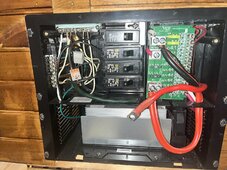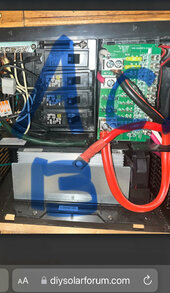ShuttleBus
New Member
Hi!
Purchased a shuttle bus conversion earlier this year, wife & I intend on going full time living in December. The bus is currently set up with a RV style 30 amp hookup, which is great & runs the RV styled A/C unit when plugged in to shore or generator (plz don’t hate me, it was an in a pinch purchase).
However, when we move in do not want to only have power in back of bus when we’re hooked up somewhere. So have been scouring the net at every 3k watt inverter & inverter charger I could find & simply cannot figure out what’s the best route.
Have read that 48v battery is the best route, was thinking of 200ah. However, that is whenever I got lost in what 3k inverter to go for or an inverter / charger combo (renogy, bougerv, redodo).
Then I stumbled upon the EG4 all in one variety that caught my eye, but have read / seen an issue with those & connecting a generator. So if went that route, would potentially need the chargeverter as well.
All of this with solar in addition of course. Have been browsing santan for cheaper panels, but wanted to sort the battery & inverter situation first.
Please, could you help. I’m a novice & spending hours upon hours in YouTube university.
Thank you!!
Purchased a shuttle bus conversion earlier this year, wife & I intend on going full time living in December. The bus is currently set up with a RV style 30 amp hookup, which is great & runs the RV styled A/C unit when plugged in to shore or generator (plz don’t hate me, it was an in a pinch purchase).
However, when we move in do not want to only have power in back of bus when we’re hooked up somewhere. So have been scouring the net at every 3k watt inverter & inverter charger I could find & simply cannot figure out what’s the best route.
Have read that 48v battery is the best route, was thinking of 200ah. However, that is whenever I got lost in what 3k inverter to go for or an inverter / charger combo (renogy, bougerv, redodo).
Then I stumbled upon the EG4 all in one variety that caught my eye, but have read / seen an issue with those & connecting a generator. So if went that route, would potentially need the chargeverter as well.
All of this with solar in addition of course. Have been browsing santan for cheaper panels, but wanted to sort the battery & inverter situation first.
Please, could you help. I’m a novice & spending hours upon hours in YouTube university.
Thank you!!





